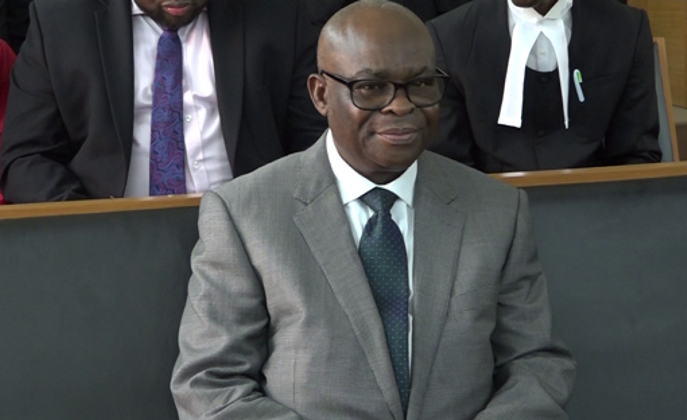On a pivotal Monday, the Court of Appeal in Abuja set aside the conviction imposed on Justice Walter Onnoghen, a former Chief Justice of Nigeria, by the Code of Conduct Tribunal (CCT) in 2019. The decision, which resulted in Onnoghen’s acquittal, was predicated on the resolution of the legal issues that initially led to his trial and conviction. Onnoghen had been found guilty of falsely declaring his assets, a judgment that was met with substantial controversy and backlash at the time. Justice Abba Mohammed presided over the appeal and based his judgment on a mutual agreement arrived at between the Federal Government and Onnoghen, resulting in the order for the return of previously forfeited bank accounts to the former chief justice.
The background to the appeal indicates that Onnoghen was co-opted into a notoriously complex legal battle that began with several charges brought against him by the CCT on January 11, 2019. Notably, prior to the commencement of his trial, the tribunal granted an ex-parte application that mandated Onnoghen to step down from his position as Chief Justice and Chairman of the National Judicial Council. This pre-emptive removal set off a series of legal challenges as Onnoghen contended that the tribunal lacked jurisdiction to try him, asserting that as a judicial officer, any such matters must first have been reported to the National Judicial Council (NJC) before any disciplinary action could be taken. He also raised concerns regarding perceived bias from the tribunal’s chairman during the proceedings.
The terms of settlement that led to the appeal’s outcome reflected a collective desire from both parties to resolve the disputes amicably. Central to the agreement was the acknowledgment that the CCT did not possess the jurisdiction to adjudicate cases involving judicial officers without involving the NJC first. This commitment to a fair legal process was reinforced by prior court decisions, establishing a framework within which judicial officers should be treated in cases of alleged misconduct. The court noted that Onnoghen’s voluntary resignation was accepted by the President of Nigeria, further complicating the tribunal’s original jurisdiction to convict him after such a resignation was submitted.
Following a session held on September 19, 2024, the Court of Appeal recognized the fruitful discussions between the Federal Government and Onnoghen’s legal representatives regarding a peaceful resolution, leading to an adjournment for a month to finalize terms of settlement. The court’s consideration of the parties’ willingness to engage in negotiations pointed to a commitment to restoring fairness and legitimacy to the judicial process. Counsel for both parties indicated readiness to cooperate and work towards a mutually acceptable agreement, with the presiding judge urging both sides to document any agreed-upon terms for adoption by the court in the future.
The procedural developments surrounding Onnoghen’s case highlighted systemic flaws and the critical importance of adhering to due process in judicial matters, particularly involving a figure of his stature. The former Chief Justice’s misfortunes extend beyond the courtroom; his imposed removal in 2019 marked a significant moment in Nigeria’s legal arena, suggesting political motivations behind his prosecution rather than a purely judicial issue. The recent overturning of his conviction therefore serves not only as a legal victory but also as an important commentary on the integrity of judicial proceedings in Nigeria, especially in politically charged cases.
In conclusion, the Court of Appeal’s judgment not only reinstates Onnoghen’s standing, but it also sheds light on the overarching principles of justice and fair trial that must be upheld in legal proceedings. This case illustrates the necessity for due process and careful adherence to established legal protocols when dealing with judicial officers, and it further challenges the role of executive influence in judicial matters. It remains to be seen how this case will impact future proceedings involving allegations against judicial officers in Nigeria, but it undoubtedly sets a significant precedent for the legal establishment’s commitment to uphold the rule of law.














